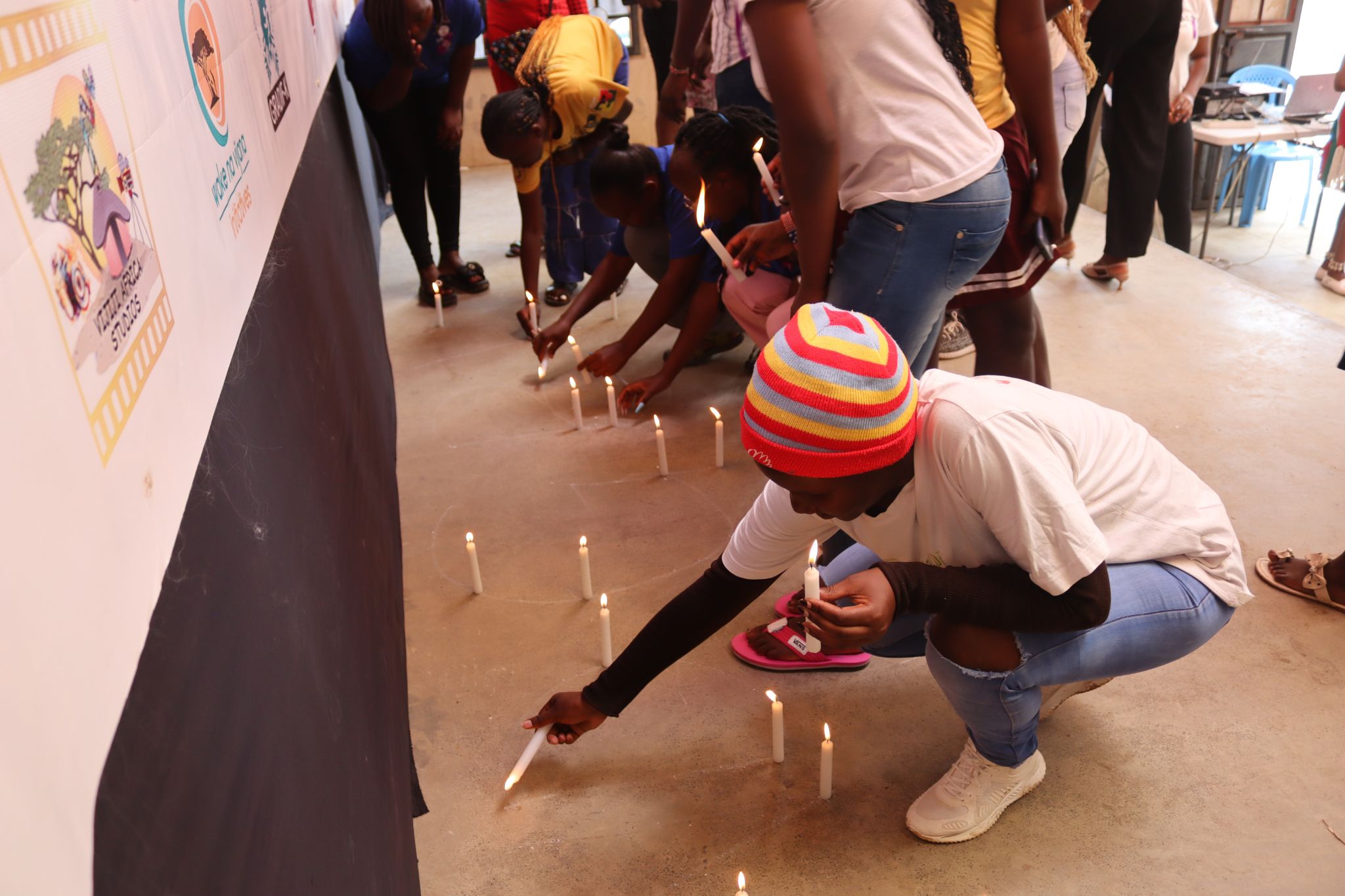









GBV AWARENESS
Raising Awareness of GBV in Kiambu County for the 16 Days of Activism
As part of the 16 Days of Activism, we were honored to collaborate with @GenerationGuiders, a community-based organization in Githurai 45, and 14 other organizations committed to raising awareness about Gender-Based Violence (GBV) in the Girls’ Festival, drawing over 110 individuals.
Through performing arts, the event provided a platform for GBV Awareness advocacy and empowerment through survivors’ stories. The event also highlighted the importance of continued efforts in educating both individuals and communities on how to report abuse, create safer environments, and challenge harmful cultural norms that contribute to GBV.
Some of the Root Cause of GBV in Kiambu County
Economic factors are deeply intertwined with the prevalence of GBV, influencing both the occurrence of violence and the ability of individuals to escape abusive situations. Addressing these socio-economic issues in Kiambu County is key to creating long-term solutions to prevent and mitigate GBV. Tackling poverty, improving access to education and resources, and fostering economic independence, can contribute to breaking the cycle of violence and creating safer, more equitable communities.
“Last week, I had the privilege of participating in a stakeholder forum in Kiambu, where we discussed the prevalence of Gender-Based Violence (GBV) in the county. What stood out during our discussions were the underlying factors contributing to GBV, particularly economic and cultural issues. The prevalence rate was approximately 30%, with economic factors being a significant driver.” Highlighted Erick Okacha, Assistant County Commissioner, Githurai Sub-County.
The belief that men have an inherent right to sex, or that physical violence in intimate relationships is a form of “love” or “passion.” Often perpetuates GBV. These myths are contributing factors that make it harder for survivors to identify abuse or seek help because they are conditioned to think that such violence is acceptable or even deserved.
Erick Okacha stressed the importance of reporting abuse through official channels, such as the police station’s gender desks, rather than relying on the ‘Kangaroo system’ which is an informal or extrajudicial method of resolving disputes. These informal methods may minimize the seriousness of the violence or prioritize reconciliation over justice, leaving survivors without the protection they need.
One tragic example he shared was the story of a 14-year-old girl who was being sexually abused by a relative. By the time the case was reported, it was too late—the girl tragically took her own life.
The Reporting GBV
One of the key challenges in addressing GBV is the silence that often surrounds it. Many survivors fear speaking out due to the stigma attached to their experiences, while others simply don’t know how or where to report abuse. This lack of awareness is a contributing factor of many cases going unreported and unresolved.
Ann, a Community Health Promoter (CHP) from Mwehoko, explained the critical steps in reporting GBV cases. “One of the reasons GBV cases don’t progress is due to procedural missteps,” she said. “For example, if a child has been defiled, their clothes should not be changed. If the clothes are not wearable, they should be placed in a khaki bag, not a nylon bag, to preserve evidence. You must go to the police station, but not just for recording the incident. The gender desk is the designated authority to follow up on GBV cases. Afterward, you must proceed to a health facility within 72 hours. Once the medical results are obtained, take the completed P3 form back to the gender desk, so the investigating officer can push the case to court.”
She also called on the government to consider expanding access to P3 forms for all GBV cases. Currently, only defilement and rape cases are covered by county-funded P3 forms, leaving victims of assault and other crimes to pay for them out of pocket.
Empowerment Through Knowledge and Action
Leonard from NAYA highlighted the importance of self-empowerment: “There is ‘Nothing for us without us!’ No one will fight for you unless you equip yourself with the knowledge required to stand up for yourself and say enough is enough.”
These powerful words resonated deeply with the festival’s participants, reminding them that they must not only stand up for themselves but also advocate for others in their communities.
Candlelighting ceremony
To conclude the event, we held a candlelighting ceremony in memory of the victims of femicide and Gender-Based Violence (GBV). This solemn moment served as a powerful tribute to those who have lost their lives due to violence, and as a reminder of the ongoing fight for justice, safety, and equality. By lighting the candles, we honored their memory and united our voices in calling for an end to GBV, standing in solidarity with survivors and advocating for a future free from violence.


